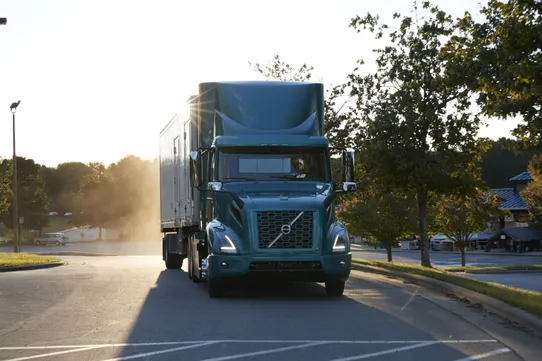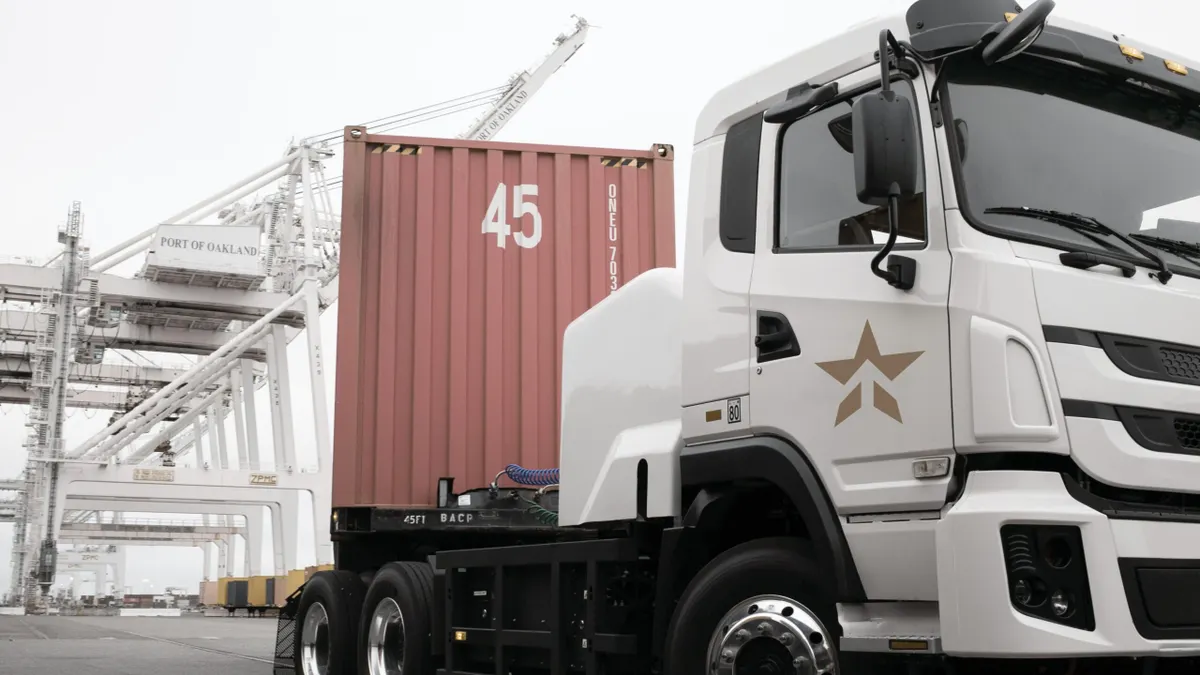Clarissa Rankin was one of many truck drivers who watched the pandemic unfold from the front lines.
“Traveling from state to state and seeing how other people are struggling … It was horrible,” Rankin said, recounting the early days of the coronavirus’ far-reaching impact. “It caused an effect on a lot of truck drivers. I know it caused an effect on me.”
The pandemic exacerbated aspects of the job that were already mentally taxing on truck drivers. Fleets have increasingly recognized that mental health directly influences employees’ physical health, performance and safety, and vice versa, according to Michael Yonka, director of safety services for transportation at Sentry Insurance.
“The issues that [mental health disorders] cause — the anxiety, the depression, the chronic loneliness — definitely leads [people] into more health issues: not eating properly and definitely not getting sleep,” Yonka said.
An unhealthy lifestyle and drowsiness “turns into a road safety issue,” he added. Improving truckers’ performance and safety with wellness programs could result in lower insurance premiums.
Mental health resources also provide value to drivers and could aid retention.
“How do you make drivers want to work here and stay here? Well, show them you care about them as human beings,” Yonka said.
Pandemic exacerbates already isolating job
Even prior to the pandemic, transportation exhibited the fourth-highest suicide rate for both males and females among occupational groups, data from the Centers for Disease Control and Prevention shows. For drivers who are alone in an enclosed space for hours on end, trucking can be an isolating profession.
Drivers see a lot of things on the road, and some incidents can be traumatizing and contribute to mental health disorders. For instance, witnessing deadly accidents or human trafficking can raise feelings of fear and anxiety.
Thus, post-traumatic stress disorder is one of transportation professionals’ most reported mental health disorders, behind depression and anxiety. Experts said truckers also are particularly vulnerable to suicidal thoughts, seasonal affective disorder and burnout.
“How do you make drivers want to work here and stay here? Well, show them you care about them as human beings.”

Michael Yonka
Director of Safety Services for Transportation at Sentry Insurance
Mental and physical health go hand-in-hand, and deficiencies in one impact the other, according to experts. Truckers often lead less-healthy lifestyles due to the nature of their work. Stress from traffic or on-time delivery pressure, inadequate physical activity, insufficient access to healthy foods and insufficient sleep all contribute.
Then, during the pandemic, truckers’ few opportunities for human contact and obtaining basic amenities were stripped away in some cases. Truck stops and restaurants closed, either voluntarily or by government order. Many shippers or other receivers also prevented truckers from entering their facilities.
“It’s already a lonely profession, and now they can’t go inside,” said Yonka. “The drivers really were cut off from society, even though they were out driving down the road.”
Being away from coworkers or other human contact can be dehumanizing and induce mental health challenges, which increased across the globe as the pandemic took hold.
In another survey by the CDC, nearly 41% of respondents reported their mental health suffered during the early months of the pandemic. Symptoms of anxiety and depression increased in the U.S. from April to June 2020, compared to the same period in 2019.
COVID-19 takes a toll on mental health across the U.S.
In addition, truckers bore the stress of being unable to see and comfort sick friends and family while on the road for days or weeks at a time.
“It was really challenging during the pandemic. That has exacerbated already existing stressors and problems for truckers,” said Mona Shattell, chair and professor of the Department of Nursing Systems at the University of Central Florida, who researches truckers’ mental health.
Providing assistance for truckers’ mental and emotional needs is “an area that needs some improvement,” she said.
Setting up support systems
Prior to the pandemic, few fleets offered dedicated mental health services to truckers. But anecdotal evidence indicates the coronavirus prompted more transportation firms to start discussing mental health and investigate assistance for employees.
“The progress I see is how much more open we are to talking about it within the management ranks,” said Nate Kennedy, human resources director at Hogan Transportation.
Hogan is “just breaking the ice on mental health,” Kennedy said, adding that he would like to see the firm — and others — develop a formal support program.
Hogan currently encourages employees to take advantage of a third-party employee assistance program. Paper Transport also offers an EAP for employees and their families that includes counseling. Dot Foods is among the transportation firms that offers resources for maintaining physical and mental health, including an EAP and access to telehealth counseling.
Telehealth services, which experienced a surge in demand during the pandemic, could be key for drivers, in particular. Truckers have difficulty attending in-person sessions because of their schedules.
Shattell noted some firms also have started offering physical and mental healthcare services at distribution centers and truck stops to meet drivers where they are.
Communication is at the heart of assisting drivers. Supervisors and dispatchers are encouraged to check in with truckers regularly and ask how they’re doing. Modern communication methods make check-ins more efficient and provide more data than in the past.
“Everybody has found out with the pandemic that there are new ways of communicating,” Yonka said. A video chat, for example, allows a supervisor or dispatcher to “read [the trucker’s] face a little bit: How are they reacting to your questions? How are they interacting with you as you’re going through this conversation?”
Data shows peer-to-peer support is effective, too, Shattell said. Peer support outlets include trucker YouTube channels or Facebook groups like Truckers for Truckers.
Rankin frequently posts videos on TikTok and other social media platforms showcasing the trucker lifestyle. She underscores the importance of truckers engaging in self-care to maintain physical and mental well-being and offers her peers tips for healthy eating, physical activity, making time for personal hygiene and taking time just to rest.
But she says the onus to keep health and well-being in check shouldn’t solely fall on truckers.
“The companies can do a lot more,” Rankin said. She noted transportation firms already require drivers to watch safety training videos, and it would be easy to incorporate mental health and self-care as a training topic.
“Add in that type of education, not just the education that ‘safety is the best,’” she said. “Yes, safety is the best, but health and your mindset is the best, too.”
Overcoming stigma
Effectively addressing mental health issues involves overcoming a sizable barrier: stigma.
“It’s hard, almost taboo, for truck drivers, or for society in general, to talk about mental health,” said Kennedy.
Trucking is still a male-dominated profession and drivers sometimes are stereotyped as “tough” or “macho.” Male drivers especially hide their feelings and mental health issues because admitting to and talking about such topics is viewed as a sign of weakness, Shattell said.
Female truckers also face gender-specific stressors that impact mental health, such as discrimination, feeling unsafe and feelings of inadequacy when balancing life on the road with being a good caregiver.
The pandemic prompted some change in that rhetoric as millions of people began experiencing symptoms of mental health challenges. Although that’s a good start, society has a long way to go with getting past the stigma, experts say.
“Mental health is a part of our national dialogue now. However, I still don’t think that has shifted much of the stigma around mental health,” Shattell said.
Creating a culture where it’s OK to talk about mental health at work is paramount because that’s the first step toward improvement, experts said. Employees might not feel comfortable being vulnerable about sensitive subjects at work, but management can lead the way.
“If we act like it’s no big deal that we’re talking about it, then drivers will catch on and be more open to talking about that as well,” Kennedy said.























